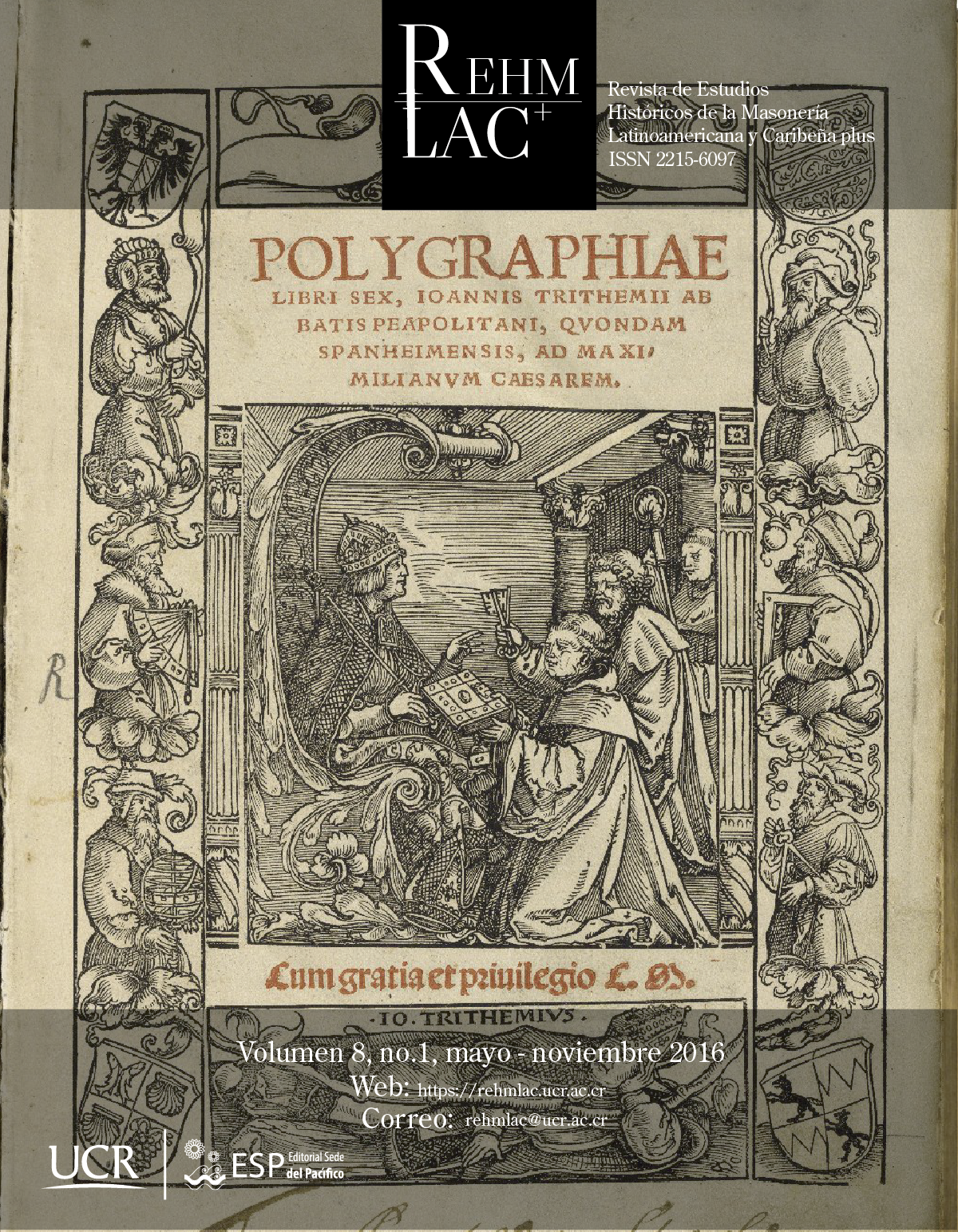Abstract
One of the greatest aspirations of modern freemasonry is universality. To materialize this will of being global, one of the fundamental instruments of any masonic body is the conduction of its external relations. There are guidelines, despite its many divisions, which obediences follow in order to recognize each other as legitimate, or in masonic terms, regular. This article is an introduction to the discourse of regularity that has been the connecting thread of many masonic bodies around the world. In order to be more specific about this discussion, I will briefly analyze the relationship between Brazil and England within the “regular” obediences, and thus, understand how this criterion is built, applied and modified within different historical contexts.
##plugins.facebook.comentarios##

This work is licensed under a Creative Commons Attribution-NonCommercial-ShareAlike 4.0 International License.
Copyright (c) 2009 REHMLAC

